Review: One Small Step; but a big step for Academy Games
I have been a fan of Academy Games well before I met Uwe Eickert, their CEO from playing their series. I got to meet Uwe at Connections 2019 and interviewed him for a podcast and I was impressed with his approach as a game developer. While Academy games does not have dozens of titles, every game in their inventory is a masterpiece that all gamers will enjoy. Their game which covers the space race, is yet another hit in their catalog. The fact that I understand Uwe’s process and thinking has caused me to hold his titles to a higher standard. One Small Step (OSS), an idea from first time designer is yet another hit and should be a must-buy for historical gamers who love the space race.
Basically, OSS is a worker placement game where the US and Soviet space agencies vie to be the first to put a man on the moon. Each side consists of two teams, one made up of engineers and the other being administrators (the teams can be controlled by two different players) who hope to place their workers and resources in a manner that will lead to mission success.
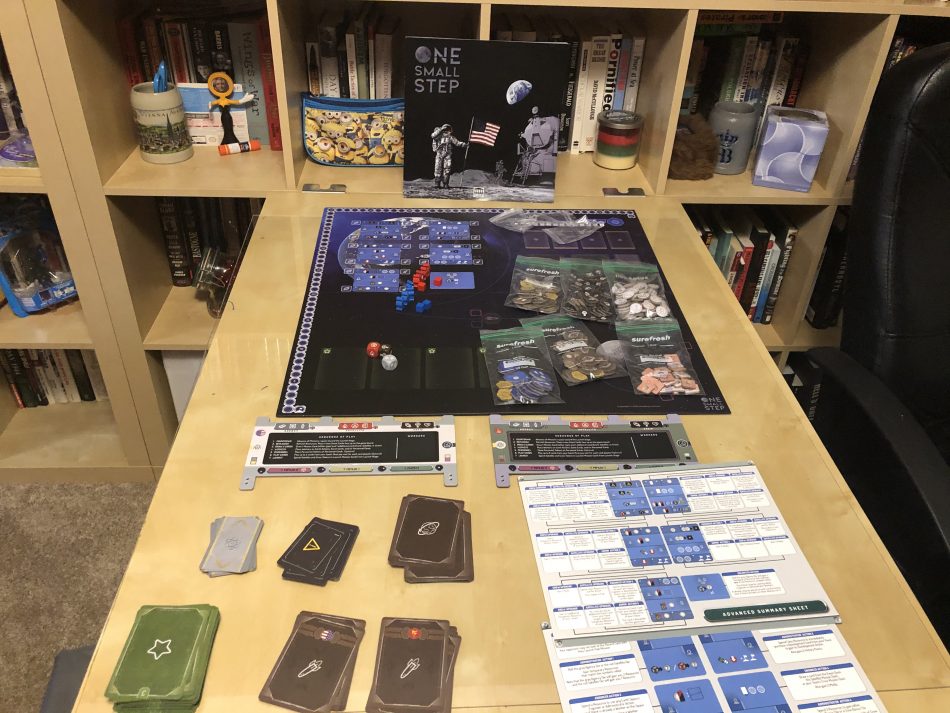
The action in the game consists of a lot of “small steps” to be able to have the resources and technology to get a man to plant your nation’s flag on the moon. As it was in real life, it is not an easy job. Each turn you need to pick a mission card which can be a crewed space mission or a satellite mission that gets you closer to realizing the manned moon mission.
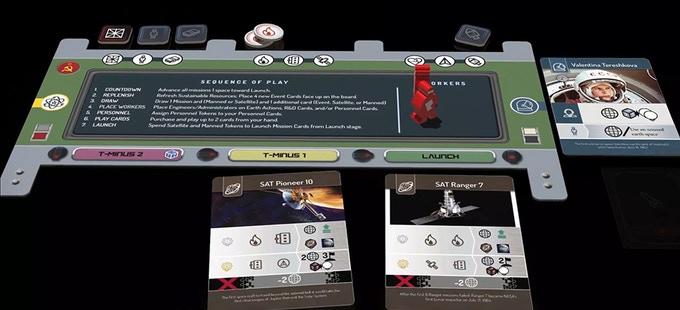 During the game, you are managing a lot of moving parts to ensure mission success. One such area is how the media supports your program which determines which side has initiative for each turn. After this is determined the game turn starts and is very fluid, so you have to make key decisions during each step of the game.
During the game, you are managing a lot of moving parts to ensure mission success. One such area is how the media supports your program which determines which side has initiative for each turn. After this is determined the game turn starts and is very fluid, so you have to make key decisions during each step of the game.
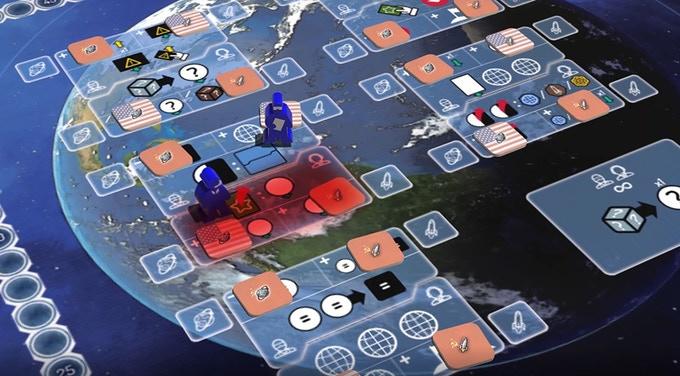
Being a Euro game, the cards dictate the flow of the game and can inject anything from mission, famous personnel, technology development, and you have hazard cards which are never good.
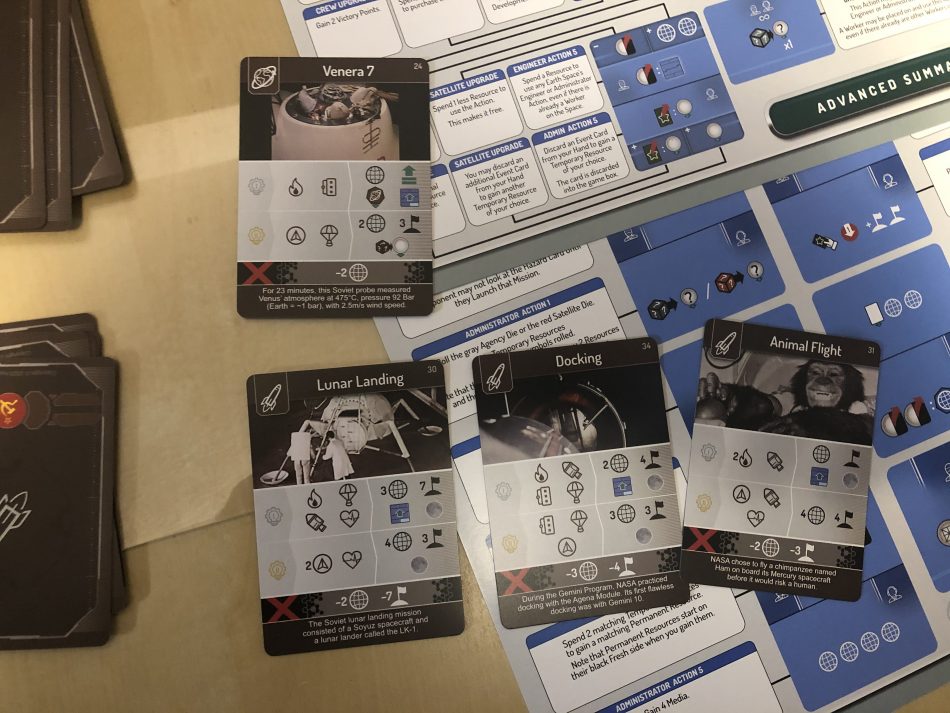
The big mechanic of the game is the worker placement and allocation of your resources with the focus being on the missions you currently have assigned. What I found from playing the game is that you really cannot lose the game in any single turn, but you can make it harder to win.
While the goal is to get to the moon, it is not the only way to win the game. Each accomplishment, like a successful mission, grants you victory points, and the player with the most VPs at the end of the game wins.
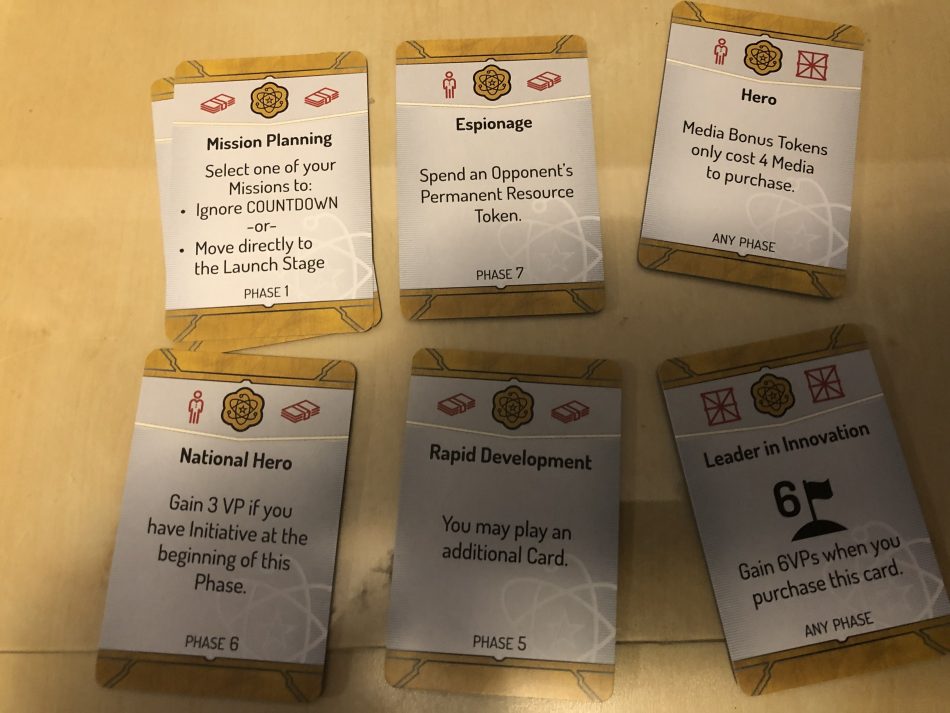
Being that this is a game from Uwe and the team, the components of the game are excellent. Somehow, they are able to produce the thickest counters in the community. The cards are also top-notch and you do not need to sleeve them, these are very durable cards with amazing artwork. The rules teach you a basic version of the game before you dive into the full experience which is another hallmark of Academy Games. From reading the rules, and watching some videos on Board Game Geek I was able to blast off in no time.
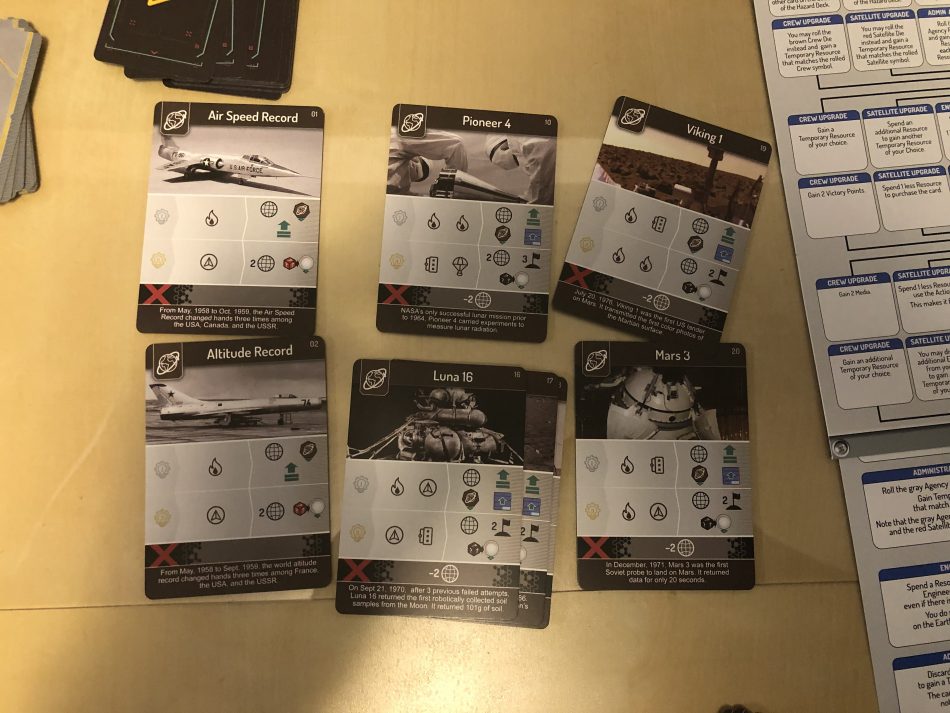
Last summer with the 50th anniversary of the moon landings we saw a bunch of games that came out that covers the space race. The other was Tranquility Base from which I also have. While the games cover the same topic, the scope and mechanics of the games are totally different. While both games show you, what took place in the space race, OSS shows you how hard and how much of a total national effort it was.
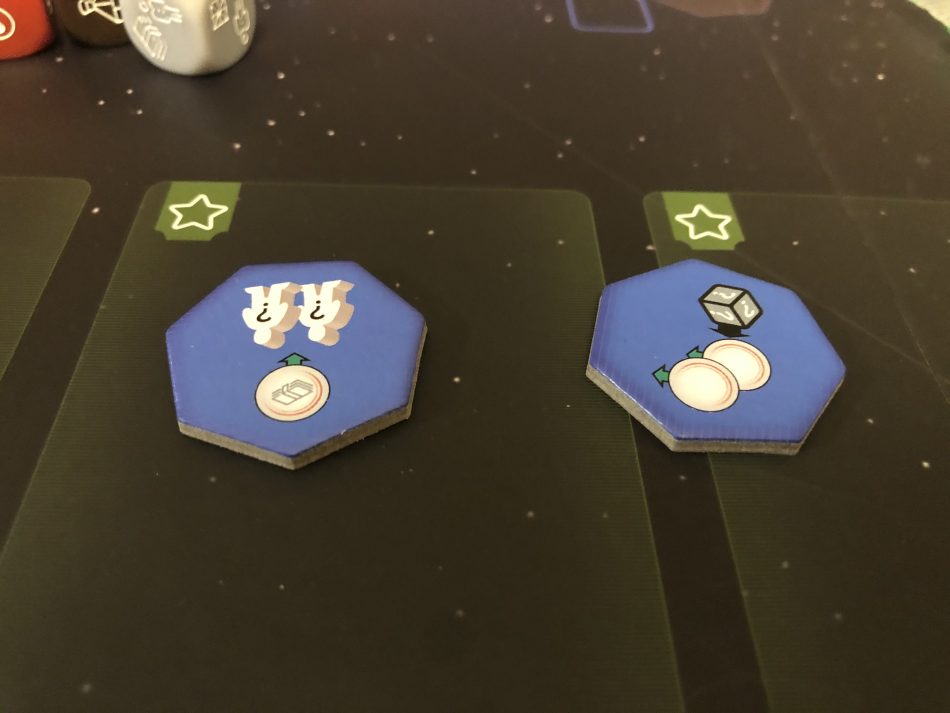
Many people may feel OSS is similar to the PC/Tablet game, r, and that comparison is valid. Both games show you the building blocks each nation had to accomplish in the space race, however for a great board game experience with 1-3 friends, OSS is the game you want.
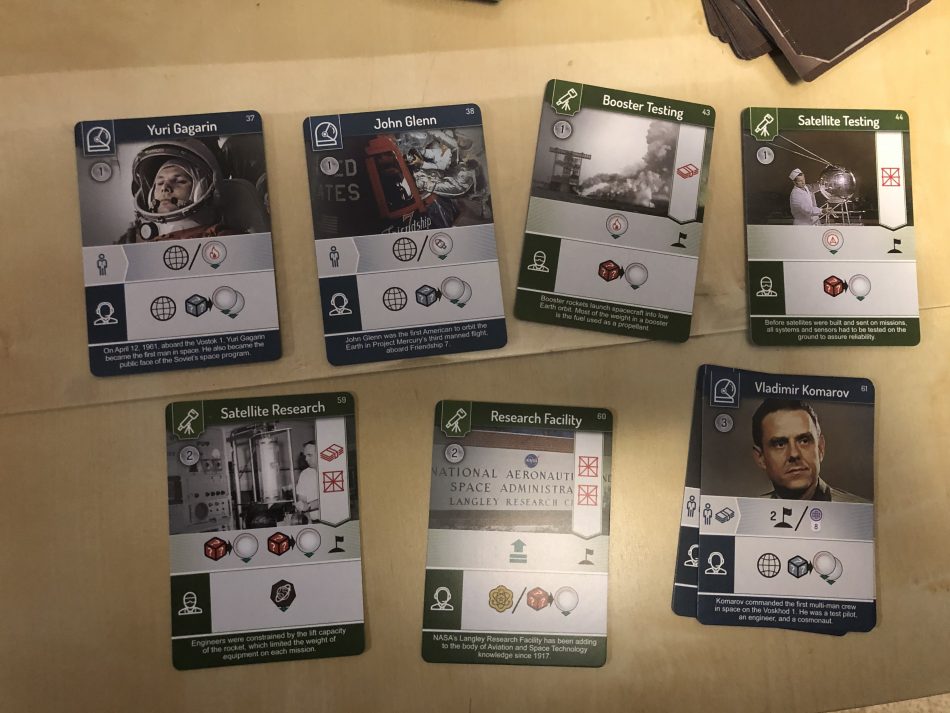
Some of our readers may know that before I became a USAF wargamer, I helped open a space office in the Pentagon that eventually became the Space Force. I wanted to get some of the people who I knew from that experience and from NASA over one day to play OSS. The pandemic prevented that from happening, so two days before Thanksgiving, OSS took some small steps all over my neighborhood to the homes of people who work for either the USSF or NASA. While I cannot mention them by name, they all loved the game. The biggest thing they saw how much fun it was for the whole family to play and even some smart middle schoolers took a spin on OSS. They also felt that the game, as an educational tool has so much potential.
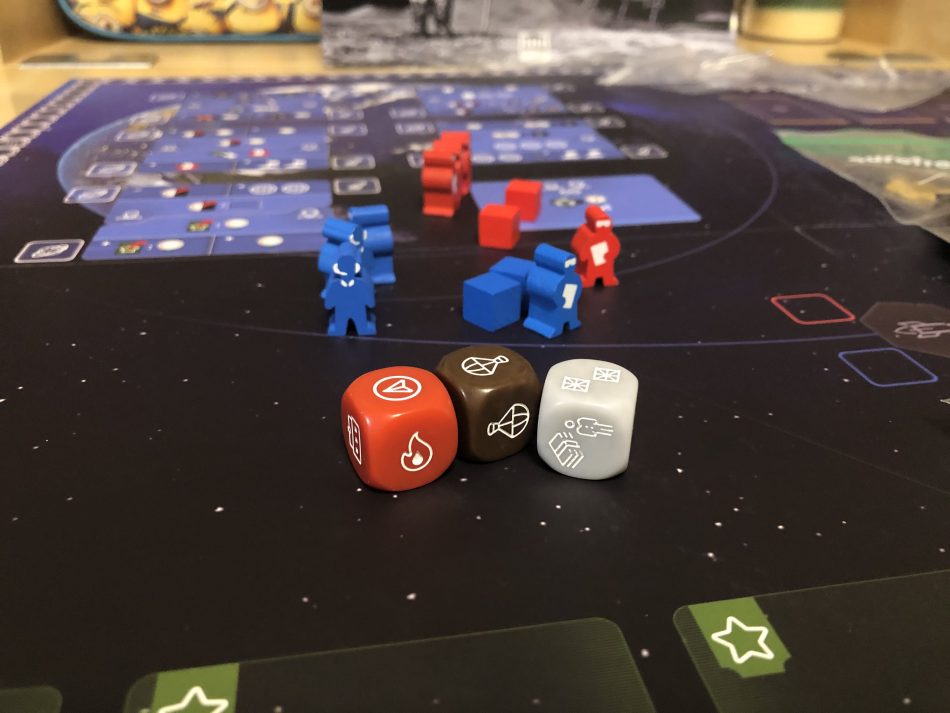
When Uwe offered the game to me, he kept saying “you know it is not a wargame’, and for the first time I was able to say that he was not 100% correct. Warfare takes on many shapes and sizes and competition between two nations is a form of “warfare”. No story from the Cold War illustrates the tensions and competition between the West and the Soviet Bloc more than the space race. So while it is not a “wargame” it is a historical competition game that brings one of the most exciting periods of history to your game table.

While I love this game the only thing I would change is to put in more specific goals/event trees for each faction. The missions are generic for the most part and maybe my knowledge of the different US and Soviet programs during this period made me translate some of the game’s missions into specific terms, like Vostok for the Russians and Mercury for the US. However, since the USSR did not make it to the moon, I feel that making it more generic also makes the game fair and in-turn very fun to play.
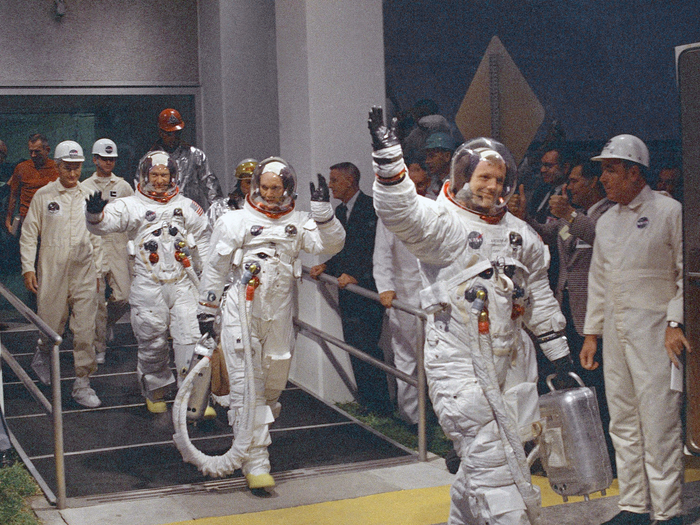
For those who are space geeks like me and love good historical-based games, then One Small Step is one big purchase you just have to make.
